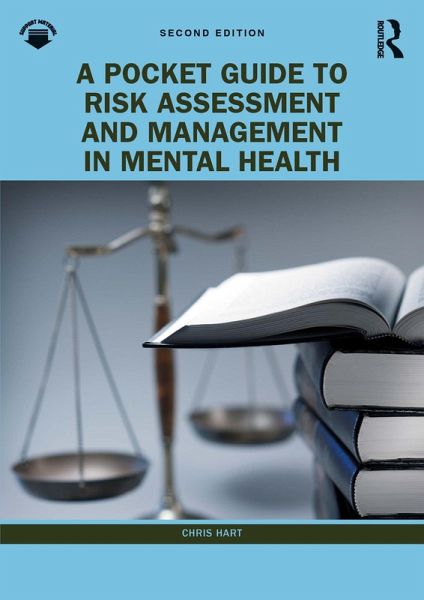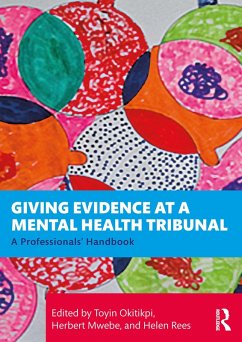
A Pocket Guide to Risk Assessment and Management in Mental Health (eBook, ePUB)
Versandkostenfrei!
Sofort per Download lieferbar
35,95 €
inkl. MwSt.
Weitere Ausgaben:

PAYBACK Punkte
18 °P sammeln!
Risk assessment and risk management are top of every mental health organisation's agenda. This updated and expanded new edition provides an informative and practical guide to the process of undertaking a risk assessment, arriving at a risk formulation and developing a risk management plan.Covering everything a practitioner may have to think about when undertaking risk assessments in an accessible, logical form, the second edition of A Pocket Guide to Risk Assessment and Management in Mental Health includes new and expanded content on: risk formulation; working in forensic settings; specific me...
Risk assessment and risk management are top of every mental health organisation's agenda. This updated and expanded new edition provides an informative and practical guide to the process of undertaking a risk assessment, arriving at a risk formulation and developing a risk management plan.
Covering everything a practitioner may have to think about when undertaking risk assessments in an accessible, logical form, the second edition of A Pocket Guide to Risk Assessment and Management in Mental Health includes new and expanded content on: risk formulation; working in forensic settings; specific mental health disorders; models of suicide and self-harm; and triage. It features practice recommendations rooted in the latest theory and evidence base, clinical tip boxes, tables, diagrams and case examples, along with samples of authentic dialogue which demonstrate ways to formulate questions and think about complex problems with the person being assessed. A series of accompanying videos, professionally made and based on actual case studies, are available on a companion website, further illustrating key risk assessment and management skills.
This concise guidebook is designed for all mental health professionals, and professionals-in-training. It will also be a useful reference for all healthcare practitioners who regularly come into contact with people experiencing mental health problems.
Covering everything a practitioner may have to think about when undertaking risk assessments in an accessible, logical form, the second edition of A Pocket Guide to Risk Assessment and Management in Mental Health includes new and expanded content on: risk formulation; working in forensic settings; specific mental health disorders; models of suicide and self-harm; and triage. It features practice recommendations rooted in the latest theory and evidence base, clinical tip boxes, tables, diagrams and case examples, along with samples of authentic dialogue which demonstrate ways to formulate questions and think about complex problems with the person being assessed. A series of accompanying videos, professionally made and based on actual case studies, are available on a companion website, further illustrating key risk assessment and management skills.
This concise guidebook is designed for all mental health professionals, and professionals-in-training. It will also be a useful reference for all healthcare practitioners who regularly come into contact with people experiencing mental health problems.
Dieser Download kann aus rechtlichen Gründen nur mit Rechnungsadresse in A, B, BG, CY, CZ, D, DK, EW, E, FIN, F, GR, HR, H, IRL, I, LT, L, LR, M, NL, PL, P, R, S, SLO, SK ausgeliefert werden.













